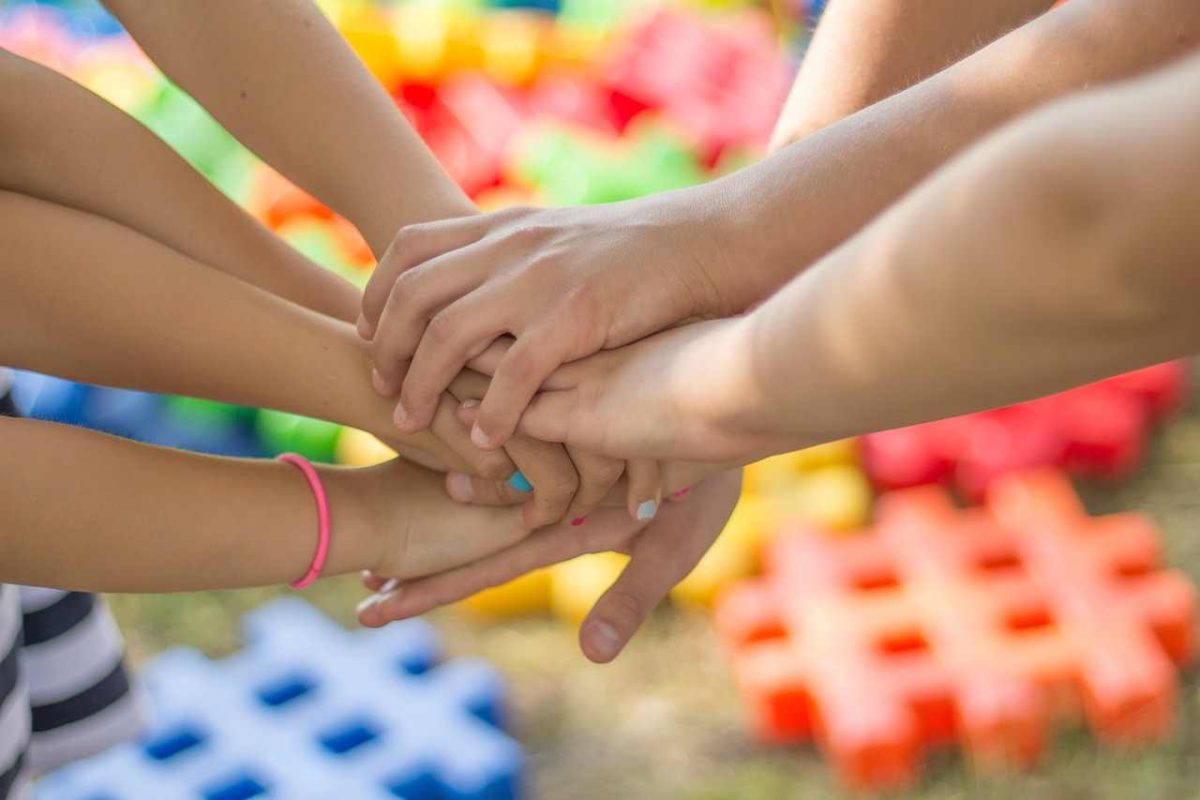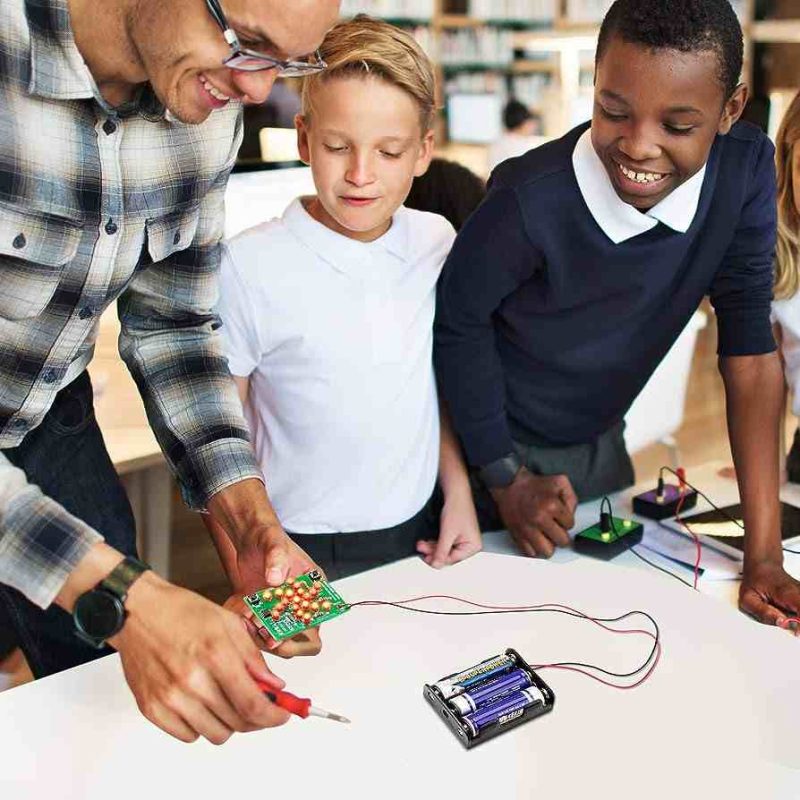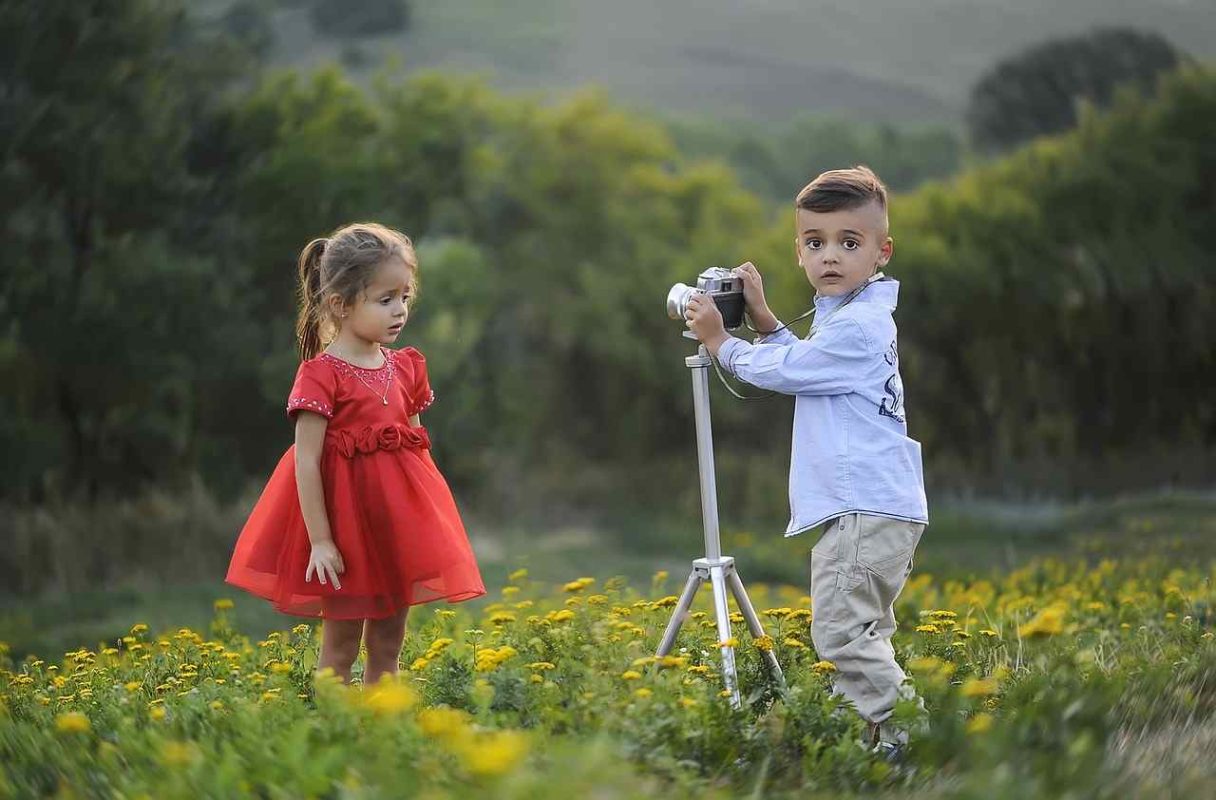Child Development
Mastering Children Social Skills: Building Positive Relationships
Introduction
The development of children social skills is critical for their overall growth and wellbeing. A child’s ability to communicate effectively, cultivate positive relationships, and navigate social situations impacts their emotional, cognitive, and behavioral progress. By mastering key social competencies early on, children gain self-confidence, resilience, and the tools to succeed in school and beyond.
This article will explore the foundations of social skill development in kids and provide actionable strategies for parents, educators, and caregivers. We will cover how to teach empathy, conflict resolution, and emotional awareness through play-based learning and real-world interactions. Additionally, the importance of modeling healthy relationships and promoting inclusive, engaging environments for children will be discussed. Equipping kids with robust social skills and emotional intelligence fosters positive lifelong impacts.
Table of Contents
The Foundation of Social Skills
Defining Social Skills
Social skills encompass the abilities necessary for productive social interactions. Key competencies include:
- Communication skills – expressing needs, listening actively, engaging in conversations
- Empathy – identifying others’ feelings, being compassionate
- Emotional regulation – managing strong emotions and impulses
- Problem solving – resolving interpersonal conflicts peacefully
- Collaboration – cooperating with others on tasks and activities
- Respect – being considerate and thoughtful of others’ perspectives
As children master these abilities, they gain greater social awareness, form stronger connections, and learn to navigate challenges.
Significance of Social Skills
Well-developed social skills provide a strong foundation for children’s growth and development:
- Builds confidence to engage with others and ask for help when needed
- Enables successful academic performance through focus, collaboration, and problem solving
- Fosters positive peer and adult relationships built on trust and empathy
- Allows children to identify and regulate their emotions properly
- Helps avoid peer rejection, isolation, anxiety, depression and behavior issues
- Prepares children for adult roles requiring interpersonal communication
In short, social skills are integral for nurturing well-adjusted, compassionate, and socially intelligent children.

Teaching Social Skills to Children
Strategies for Social Skill Building
Effective ways to teach social skills include:
- Role playing – Practicing skills through drama and pretend play
- Modeling – Demonstrating positive social behaviors
- Reading books – Discussing social cues and norms from stories
- Cooperative games – Promoting teamwork and compromise through structured play
- Peer learning – Facilitating positive peer interactions and inclusive play
- Social stories – Using narratives to explain social rules and expectations
- Discussion – Having open conversations about real-life social experiences
Incorporating Play-Based Learning
Children absorb social information actively through play-based interactions. Educators and parents can leverage play to promote skill development:
- Foster pretend play scenarios that require negotiation, role taking and cooperation
- Introduce games with rules that structure turn-taking, sharing, and collaboration
- Guide play activities using toys/props to act out real-life situations
- Observe play behaviors to understand each child’s level of social skill
- Keep groups small during play to allow adequate peer interaction
- Let children resolve minor conflicts independently during play
The hands-on, engaging nature of play provides an optimal learning environment.
Building Empathy and Understanding
Activities that cultivate empathy, compassion and perspective-taking:
- Read stories about different types of people/cultures and discuss feelings and experiences
- Explicitly discuss how actions impact others using real examples
- Practice identifying non-verbal cues like facial expressions and body language
- Role play situations from different viewpoints
- Engage children in caring projects helping others in need
- Encourage inclusivity and concern for classmates who seem lonely or upset
- Praise children for displaying kindness and concern for others
Positive Relationships: Key to Development
The Impact of Relationships
The close relationships children form with parents, caregivers and teachers profoundly influence their social-emotional maturation. Positive relationships characterized by warmth, trust and sensitivity foster social skill growth through:
- Creating a secure base for developing autonomy and exploration
- Responsive communication that validates children’s perspectives
- Modeling prosocial behaviors like cooperation, empathy and compromise
- Providing guidance to help children constructively solve interpersonal problems
- Helping children feel valued, gain self-esteem and internalize moral values
Conversely, relationships marked by hostility or lack of connection can impede social skill development.
Nurturing Relationships through Communication
High-quality communication is pivotal to healthy relationships. Adults can actively build these relationships by:
- Making time for one-on-one interactions and minimizing distractions
- Being fully present and attentive when speaking with children
- Encouraging children to share thoughts and feelings openly
- Paraphrasing children’s statements to show active listening
- Validating emotions and allowing children to freely express themselves
- Having collaborative discussions to solve problems together
- Being affectionate and providing reassurance when needed
The Significance of Conflict Resolution
Disagreements are a natural part of relationships. Helping children constructively manage conflict:
- Teaches compromise, anger management, and peaceful conflict resolution
- Deepens understanding of others’ viewpoints and builds tolerance
- Resolves issues before they escalate into larger problems
- Models reconciliation and forgiveness as a path forward
- Stabilizes relationships so they can withstand occasional disharmony

Promoting Social Skills at School
Integrating Social Skills into the Classroom
Teachers play an instrumental role by integrating social and emotional learning into their curriculum:
| Instructional Strategies | Examples |
|---|---|
| Explicit skill instruction | Use lesson plans to directly teach skills like cooperation, emotion regulation, and respectful communication |
| Class discussions | Facilitate open dialogue encouraging students to share experiences and perspectives on social issues |
| Group projects | Partner with students at different ability levels to promote modeling and support |
| Peer mentoring | Partner students at different ability levels to promote modeling and support |
| Role playing | Have students act out hypothetical social situations that require negotiation, empathy and conflict resolution |
Fostering an Inclusive Classroom Environment
Teachers should actively cultivate a warm, supportive classroom environment:
- Set clear rules for respectful conduct and enforce them consistently
- Promote a cooperative rather than competitive atmosphere
- Encourage students to value diversity and collaboration
- Intervene promptly to stop exclusion, teasing or bullying
- Foster classmates as peer resources for academic and emotional support
- Incorporate team-building activities to strengthen classroom cohesion
Encouraging Positive Peer Interactions
Teachers can provide structures facilitating constructive peer interactions:
- Allow regular free play time for students to interact socially
- Conduct class meetings for students to share thoughts and solve problems
- Assign class jobs that require cooperation and turn-taking
- Form book clubs/reading buddies to discuss social themes
- Implement peer tutoring for academic subjects and social skill building
Parental Involvement in Developing Social Skills
The Parent’s Role
Parents lay the foundation for children’s social competence through:
- Direct teaching of appropriate behaviors through modeling, conversations and discipline
- Providing varied opportunities for play and interaction with peers
- Shaping experiences within the family unit that values cooperation and communication
- Working collaboratively with schools to reinforce social learning
Parents also influence through the quality of their own parent-child relationship.
Improving Parent-Child Relationships
Parents can strengthen their social connection with their kids through:
| Behavior | Example |
|---|---|
| Demonstrating warmth | Use physical affection, praise accomplishments, and convey pride in the child |
| Active listening | Give full attention when the child speaks and summarize what is heard |
| Respect | Avoid harsh punishments and value the child’s perspective in decision-making |
| Responsiveness | Provide reassurance and emotional support when the child feels upset |
| Clear communication | Set reasonable expectations and explain discipline logically |
Promoting Healthy Interactions with Peers
Parents influence peer interactions by:
- Scheduling playdates with appropriate companions
- Monitoring peer influences and relationships
- Coaching children on handling peer conflicts independently
- Role playing approaches for joining groups, sharing and expressing feelings
- Encouraging quality friendships based on cooperation and trust

Social Skills and Emotional Intelligence
The Social-Emotional Connection
Social skill competency is intertwined with a child’s emotional intelligence, which encompasses:
- Self-awareness – understanding one’s own emotions, strengths and challenges
- Self-regulation – managing overwhelming emotions and impulses constructively
- Motivation – persevering through setbacks and frustration
- Empathy – recognizing and responding to others’ emotional states
- Social aptitude – building relationships and navigating social environments
As children improve their social skills, they also mature emotionally and vice versa.
Developing Emotional Awareness
Parents and teachers can boost children’s emotional intelligence by:
- Labeling feelings as they occur – “I can see you’re feeling angry right now”
- Using reflection to build awareness – “Let’s think about why you feel scared when…”
- Identifying causes and consequences of emotions – “Your frustration made you hit, which made your friend sad”
- Validating all emotions, while guiding appropriate reactions – “It’s okay to feel jealous sometimes, but no hitting.”
- Reading stories rich with emotions and discussing them
Learning Emotional Self-Regulation
Children need guidance managing overwhelming emotions constructively. Useful strategies include:
- Taking deep breaths to calm down and de-escalate
- Using self-talk to reduce emotional reactivity – “This won’t last forever.”
- Taking a break from the situation until ready to respond calmly
- Finding a trusted adult to help process feelings
- Channeling emotions safely through exercise or art
Mastering self-regulation enables smarter decision-making.
Challenges and Solutions in Social Skill Building
Addressing Social Difficulties
Some common challenges include:
- Aggression/bullying of peers
- Withdrawal from social situations
- Difficulty reading nonverbal cues and social norms
- An inability to regulate emotions and impulses
- Refusal to share, take turns or compromise
To address these issues:
- Assess the child’s developmental level of social skills
- Determine any external factors exacerbating problems
- Implement targeted interventions like modeling skills or role playing
- Motivate children by outlining the benefits of improvement
- Provide consistent feedback to shape behaviors positively
- Monitor and track progress over time
Tailoring Support for Special Needs
Children with special needs or developmental disorders may require specialized support, like:
- Visual aids and schedules for autistic children struggling with flexibility
- Linear storyboarding to map out appropriate social sequences
- Increased supervision and redirection during play
- Explicit verbal explanations of nonverbal cues and unwritten social “rules”
- Social narratives describing appropriate responses in various situations
Overcoming Barriers to Relationships
Strained relationships can be improved through:
- Family or individual counseling to address core issues
- Focused listening and shared problem solving between caregivers and children
- Prioritizing regular one-on-one time together
- Apologizing and forgiving past hurts to start fresh
- Establishing new patterns of positive communication
With perseverance, empathy and professional help if needed, connections can be restored.
The Lifelong Impact of Social Skills
Social Ties Through Life
The social capacities developed in childhood form the blueprint for later relationships. Those with robust social skills are better equipped to:
- Form and maintain healthy friendships and romantic bonds
- Collaborate effectively as team members in the workplace
- Resolve interpersonal conflicts maturely
- Feel confident and comfortable in social situations
- Develop an extensive social support network
Lasting Benefits
Mastering social skills early enables:
- Greater adaptability, resilience, and empathy
- Higher educational achievement and career success
- Less loneliness, social anxiety and depression
- Protection from unhealthy peer pressure and risky behaviors
- More meaningful engagement with society
Social competence is associated with increased well-being and life satisfaction.
Preparing for Adulthood
As kids transition into adolescence and adulthood, parents and teachers should:
- Expand opportunities for mature social interactions
- Discuss navigating challenging situations like peer pressure
- Reinforce the importance of valuing others’ perspectives
- Motivate community service/volunteering to build social awareness
- Impart ethical values guiding conduct across relationships
- Ensure access to support services if needed
With proper scaffolding, children can gain the tools to thrive socially in adulthood.

Conclusion
Developing robust social skills and emotional intelligence in children is vital for nurturing well-rounded individuals. While such competencies can be challenging to master, parents, educators and caregivers can employ proven strategies from an early age. By role-modeling healthy relationships, guiding children through interpersonal challenges, and providing supportive learning environments, we can foster the communication, problem-solving, and self-regulation abilities that lead to social success. Bolstering these fundamental life skills will enable our children to develop into compassionate, resilient, socially adept adults.
The future rests on our commitment to raise children rich in social competence and humanity. By teaching social skills today, we can build a society of greater cooperation, empathy and understanding tomorrow.
FAQs
Why are developing social skills important for children?
Social skills allow children to initiate and maintain positive relationships, communicate effectively, read social cues, regulate emotions, and solve interpersonal problems. Strong social skills boost self-esteem, support academic achievement, and lay the foundation for success later in life.
How can parents help children develop social skills?
Parents can model positive social behaviors, role play various situations, discuss appropriate conduct and emotions, arrange playdates to practice interactions, read stories featuring social issues, promote cooperation and sharing, and give specific praise when children demonstrate good skills.
What are some effective strategies for teaching social skills to children?
Useful strategies include directly teaching skills through lessons, facilitating class discussions about social conduct, assigning group projects, implementing peer modeling and mentoring, and doing role plays of various social scenarios. Incorporating play-based learning can also be highly effective.
What role does positive reinforcement play in building social skills?
Positive reinforcement in the form of praise, encouragement, and rewards motivates children to continue applying social skills. Providing reinforcement when children successfully demonstrate behaviors like sharing, empathy, problem-solving and respect makes them more likely to repeat those behaviors.
How do children benefit from strong social skills in the future?
Mastering social skills early allows children to develop lasting friendships, romantic relationships and workplace rapport later in life. It also enables better conflict management, reduced social anxiety and loneliness, increased resilience, and greater career success. Overall, robust social skills lead to meaningful engagement with society.
References
https://www.thesunshineroom.uk/post/mastering-social-emotional-learning-in-children
https://www.scholastic.com/parents/family-life/social-emotional-learning/social-skills-for-kids/3-key-social-skills-and-how-to-encourage-them.html
https://playmatters.org.au/blog/mastering-social-skills-through-play
https://thegeniusofplay.org/genius/expert-advice/articles/supporting-social-play-helping-children-learn-social-skills-from-play.aspx
https://health.choc.org/at-home-tips-for-building-social-skills-in-kids/
https://www.brighthorizons.com/resources/Article/mastering-greeting-developing-social-skills-in-children

